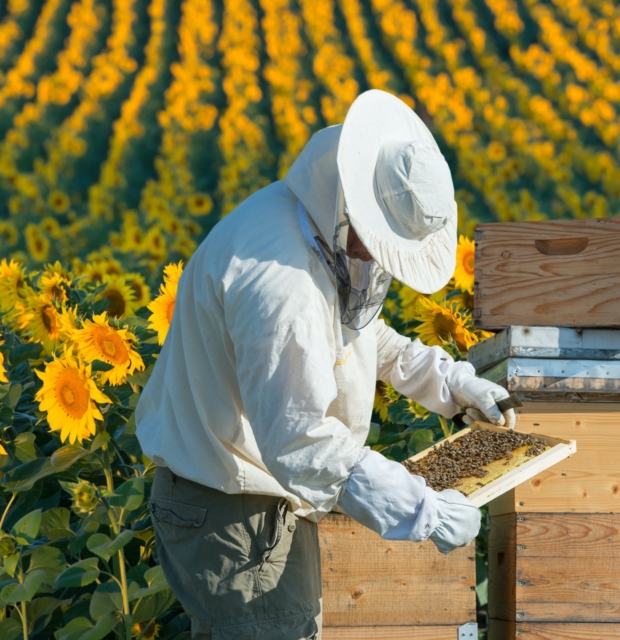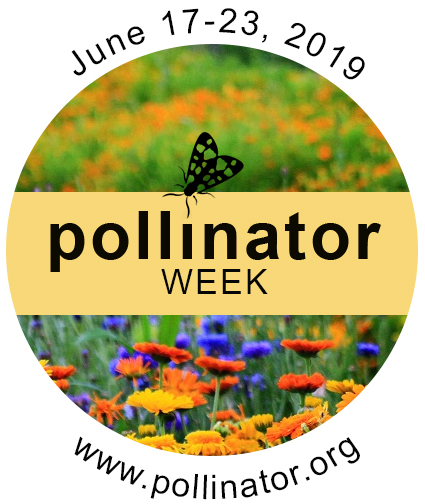News
Coalition Supports Honey Bee Health During Pollinator Week
Pollinator Week 2016 offers the Honey Bee Health Coalition an opportunity to look back on two years of outstanding work to support healthy bees, healthy people, and a healthy planet.
Two years out from the Coalition’s founding, its work and mission are as relevant as they were at its first meeting. The Coalition has grown to 40 members and is making a real difference supporting honey bee health.
Pollinator Week offers an opportunity to look forward to the Coalition and its members’ ongoing activities to support honey bee and pollinator health. The Coalition also has numerous projects underway to make this third year of its work the most impactful yet.
MP3 Website
Given the critical role states and tribes can play in supporting honey bee health, the Honey Bee Health Coalition recently hosted a symposium in Washington, D.C., to discuss best practices for developing state and tribal Managed Pollinator Protection Plans (MP3s).
Following the symposium — attended by more than 130 representatives from federal agencies, states, tribes, and the beekeeping and agricultural community — the Coalition gathered the presentations, supporting tools, and takeaways for others to utilize. Organizations and agencies interested in learning from the symposium can now find related resources on the Coalition’s website.
These materials, which cover the tools, insights, and relationships necessary for states, tribes, and other stakeholders to effectively and efficiently pursue the development of MP3s, will help others develop and implement plans to strengthen honey bee health.
Varroa Guide
The Coalition’s landmark Varroa mite management guide, which contains best practices to detect and control infestations of the destructive parasite, continues to help beekeepers defend against this parasite. The guide, released in August 2015 and regularly updated ever since, has been downloaded more than 1,800 times this year so far.
Users have lauded its approachable text and strategies, including this feedback from Julia H., a beekeeper in New Zealand: “I am just writing to let you know how fantastic I think the ‘Tools for Varroa Management’ guide is. (I didn’t realize I could get excited about management strategies for varroa!) The ‘Tools for Management’ guide is easy to read, practical and incredibly informative. After feeling very confused about which treatments I should be using when, as well as the best methods of sampling, I now feel that I have a plan in place of which I feel very confident.”
Learn more about the guide or download it yourself via https://honeybeehealthcoalition.org/Varroa.
The Bee Understanding Project
Collaboration and cooperation underpin the Coalition’s work. The Bee Understanding Project underscored this through its groundbreaking job swaps that helped beekeepers and growers see how their decisions affect each other and the health of honey bees.
The Bee Understanding Project also produced an award-winning documentary that highlighted the value of these job swaps and the dialogues they sparked. The Coalition has utilized this documentary at trade shows and other events to build a better understanding in the agricultural community and other key sectors of the importance of honey bee health for our food supply.
You can see a preview of the Bee Understanding Project film by watching its news trailer: https://youtu.be/ZkkF14TqVIg.
Learn more about how your organization can host a screening or participate in future job swaps by contacting Emily Olsen-Harbich at emily@collaborateup.com.
Coalition Members’ Pollinator Week Activities
Pollinator Week is a fantastic opportunity to focus the public and your partners on the essential role honey bees play in our daily lives. Here is a sampling of what Coalition members are undertaking next week to support honey bee health and the Coalition’s mission:
- The Propolis Project, in cooperation with local partners, will host its First Annual Pollinator Fair at Whole Foods in Dayton, Ohio (1050 Miamisburg Centerville Road), from noon ET to 4 p.m. ET on June 25. The event will include an observation hive with a marked queen as well as presentations by master gardeners and local extension staff.
- Pheasants Forever, Inc., will host Landowner Pollinator Habitat tours on June 22 and June 24 in Nebraska. The tours will focus on steps land owners and others can take to support honey bee and pollinator forage and habitat. Call 844-733-3669 for more information.
- The Reiman Gardens will host Pollinator Fest on Saturday, June 25, from 10 a.m. CT to 2 p.m. CT (1407 University Blvd., Ames, IA 50011). Event partners include the Iowa State University Pollinator Working Group, Iowa Department of Agriculture and Land Stewardship, Iowa Natural Resources Conservation Service, and many others. Activities include live honey bees, crafts, and honey tastings.
- DuPont Pioneer will host a “lunch and learn” for employees to learn more about pollinator habitat and forage. The event will include a screening of the Bee Understanding Project’s award-winning film, as well as remarks from internal and external experts.
- The Kentucky Humane Society is hosting a Pollinator Speaker Series over the course of eight weeks this summer, from June 13 to August 5, from 9 a.m. ET to 4 p.m. ET. The camp, aimed at children ages six to 12, will include discussions during Pollinator Week and after focused on honey bee and pollinator health.
- The St. Louis Zoo will once again host its annual pollinator dinneron Tuesday, June 21, from 6 p.m. CT to 9 p.m. CT. The reservation-only event will feature a variety of locally sourced foods pollinators help provide.
- Monsanto will launch a campaign with interactive graphics and videos to highlight the vital role honey bees play in our everyday lives, including how breakfast simply wouldn’t be the same without them.
[one_half]
Honey bees are essential to modern agriculture — helping produce approximately one in three bites of the food we eat.
[/one_half]
[one_half]
Monsanto’s interactive campaign shows how honey bees support a typical breakfast (left) and what this meal would be without bees (right).
[/one_half]
- Dr. Dewey Caron, Dr. Dennis vanEngelsdorp, John Edwards, and staff of the Brushy Mountain Bee Supply Co. will lead hive demonstrations and discussions at the Bee Supply Co Bee Day (29600 Sw Seeley Ave., Wilsonville, Or 97070) on Saturday, June 25 from 10 a.m. PT to 3 p.m. PT. Additional demonstrations will also be held at the company’s locations in North Carolina (610 Bethany Road, Moravian falls, NC 28654) and Pennsylvania (814 Old Route 15, New Columbia, PA 17856).
- Dr. Dewey Caron will lead a discussion, sponsored by the Central Oregon Beekeepers Association, on bee medicine and Africanized bees on Saturday, June 25, from 6 p.m. PT to 8 p.m. PT at the Sunriver Homeowners Aquatic & Recreation Center (57250 Overlook Road, Sunriver, OR 97707).
- The Pollinator Stewardship Council will host a Celebration of Ohio Pollinators in collaboration with Ohio State Beekeepers Association and with the support of Ohio-based Scotts Miracle-Gro. The event, which spans Pollinator Week, will feature partners from the Cleveland Botanical Garden, Franklin Park Conservatory and Botanical Garden, and the Aullwood Audubon Center and Farm.
We are looking forward to Pollinator Week 2016 and the numerous ways bee health stakeholders are bringing attention and action to this important issue.

